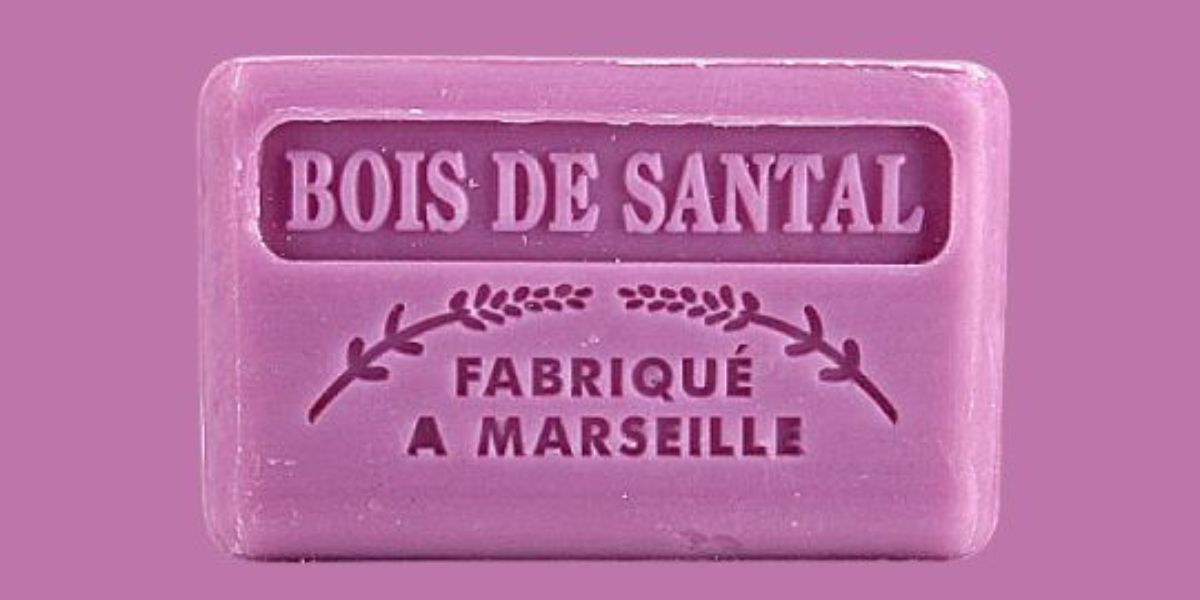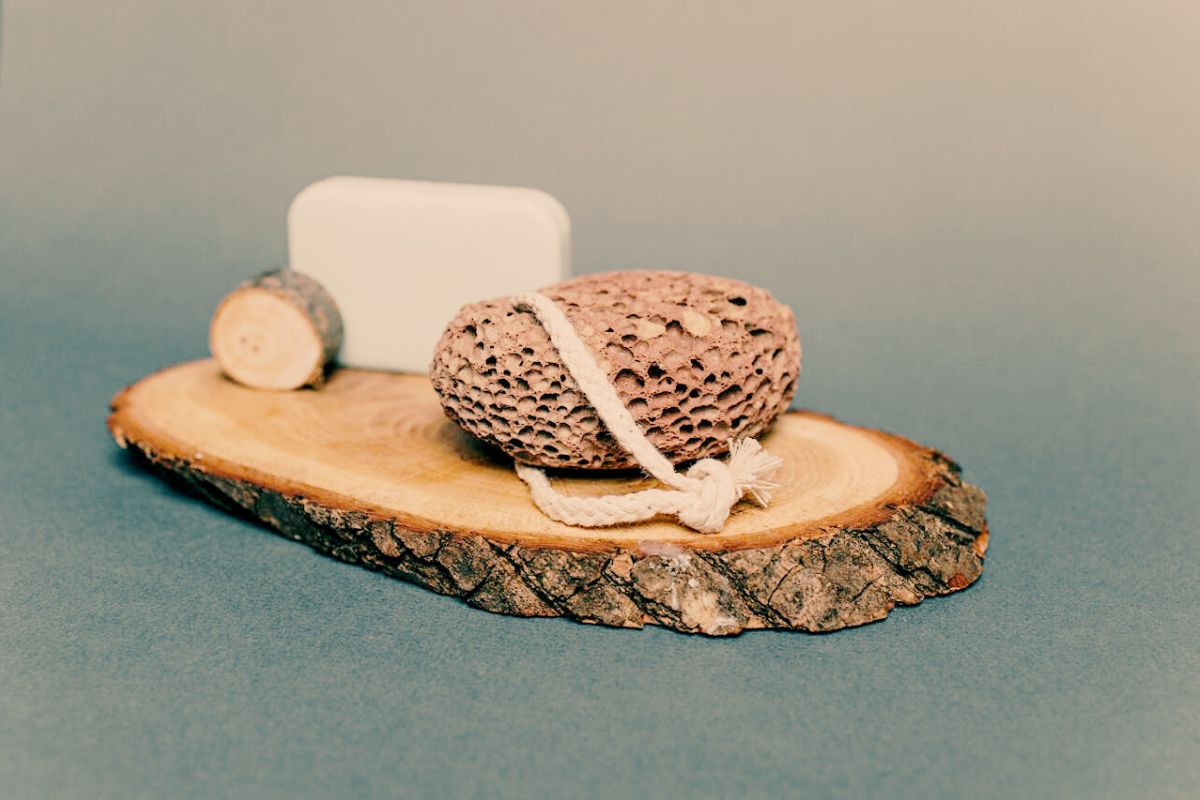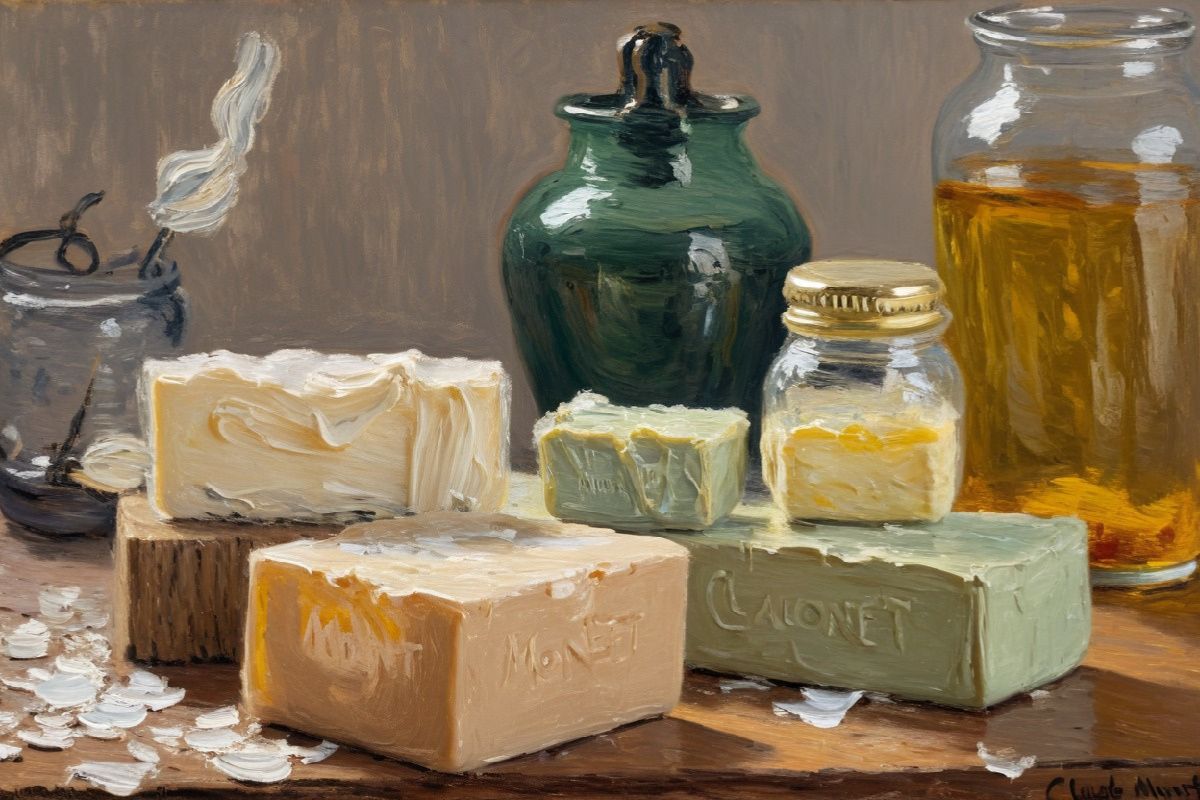Discover the versatile uses and health benefits of coconut oil for beauty and wellness. Explore how it can enhance your daily routine—read more now!
Discover the Benefits of Sandalwood Soap for Your Skin Care Routine

Why is sandalwood soap so popular? With its soothing properties and scent, it has many skin benefits. It’s also antibacterial so it keeps the skin clean and infection free. In this post you’ll learn what sandalwood soap is, its benefits and how to use it in your skin care routine.
Quick Facts
-
Sandalwood soap: your bathroom’s day-spa in a bar, with natural ingredients that keep the icky away and the ahh in!
-
Say goodbye to irritation and hello to fabulous skin—sandalwood soap is like a superhero for sensitive skin and anti-aging needs, minus the cape.
-
Make your own sandalwood soap and impress your friends with your DIY skills; just remember, no one likes a soap that smells like a chemical factory explosion!
What is Sandalwood Essential Oil Soap?

Sandalwood soap is like a day-spa in a bar, derived from the Santalum album tree, also known as the East Indian Sandalwood tree. It’s loved not just for its cleansing properties but for its unique, fragrant and gentle formula that makes every wash feel like a treat, like sandalwood trees.
The magic is in the sandalwood essential oil, a pale yellow to golden yellow liquid with a woody and sweet scent. This is what sets sandalwood soap apart from the rest. The main sources of this precious oil are Indian sandalwood and Australian sandalwood, each with its own subtleties.
Sandalwood soap is unique in its natural ingredients. Unlike other soaps that may use synthetic fragrances and harsh chemicals, it harnesses the sandalwood essential oil benefits. This gives you not only a unique scent but also skin benefits which will be discussed later. It is also antiseptic so it’s great for healthy skin.
Benefits of Sandalwood Soap
.jpg)
The calming effects of sandalwood translate to soap form so it’s a skincare superhero. Its strong anti-inflammatory properties makes it perfect for those with skin irritation or inflammation. Imagine washing away the day’s stress along with your skin troubles!
Sandalwood soap doesn’t just stop at soothing your skin; it’s a skin reviver too. Regular use of this soap can improve overall skin health by reducing signs of aging and increasing moisture retention. It’s like finding a fountain of youth in your bathroom! And the moisturising properties of sandalwood soap keeps your skin hydrated and soft.
Sensitive skin loves sandalwood soap. Its soothing effects reduces redness and irritation, makes it a gentle yet effective skincare addition. Whether you have acne, dryness or just want pampered skin, the benefits of this soap are undeniable.
How Sandalwood Soap is Made

Sandalwood soap is made from the East Indian Sandalwood oil. Essential oil is extracted through steam distillation, using the wood and sometimes the flowers of the tree. Mostly the heartwood is ground and dried to produce this east indian sandalwood oil.
But sandalwood oil is not the only ingredient. Soap needs other natural ingredients like Shea Butter and coconut oil to make a base. These ingredients work together to give you a soap that’s good for your skin and fun to use.
Carrier oils like sweet almond oil and coconut oil are used with sandalwood essential oil for topical use. This helps to moisturise the soap and ensures even distribution of the sandalwood oil so you get the most benefits. Sandalwood album oil can also be blended for extra effects.
Types of Sandalwood Soap

Sandalwood soap is available in various forms to cater to different needs and preferences. Whether you prefer pure soap or those blended with other essential oils, there's an option for everyone. The key differences lie in the formulation and purpose, such as facial care, body cleansing, or even as a shaving aid. Its therapeutic properties make it excellent for soothing and healing the skin.
Pure sandalwood soap emphasises the benefits of sandalwood oil, offering a strong woody scent that is both calming and uplifting. Blended versions may include essential oils like tea tree oil or lavender essential oil for added benefits and a more complex fragrance profile.
For specific skin concerns, formulations combine sandalwood with other therapeutic ingredients, targeting acne, dryness, or sensitivity, making it a valuable addition to your skincare routine.
Sandalwood Soap for Skin Conditions
Sandalwood soap is a treat for your skin. Its antibacterial properties make it ideal for acne and minor wound infections. It’s like having a mini dermatologist in your soap dish! Beyond its antibacterial benefits, It also offers antimicrobial protection, keeping your skin safe from microorganisms.
For those with inflammatory skin diseases like eczema and psoriasis, sandalwood soap provides relief. Its anti-inflammatory properties help reduce symptoms and improve skin elasticity, giving you a youthful appearance and helping with wound healing. Its cooling effect soothes sensitive skin and minimises flare-ups, making it perfect for delicate skin.
Sandalwood oil possesses antioxidant properties which help to protect skin cells. It also has healing properties, and may help reduce the appearance of scars.
Additionally, sandalwood soap acts as an exfoliant, removing dirt and impurities to promote clearer skin. Its moisturising properties keep your skin hydrated and soft, combating dryness and irritation. Plus, it helps calm post-shave irritation and redness, making it a great addition to your shaving routine.
Essential Oil Benefits for Hair and Scalp

Sandalwood oil has been cherished in Ayurvedic medicine for centuries due to its remarkable benefits for hair and scalp. It serves as a natural remedy that soothes an itchy scalp, reduces dandruff, and helps prevent hair loss. This isn't just a dream; sandalwood oil turns it into reality.
With its anti-inflammatory and antiseptic properties, sandalwood oil calms an irritated scalp and promotes a healthy environment for hair growth. It also balances the natural pH of your scalp, ensuring your hair follicles thrive.
To enjoy these benefits, simply mix a few drops of sandalwood oil with a carrier oil like coconut or olive oil. Gently massage this blend into your scalp, leaving it on for at least an hour before shampooing. For an added boost, incorporate a few drops of sandalwood oil into your regular shampoo or conditioner for enhanced shine and vitality.
Aromatherapy and Meditation

Sandalwood oil isn’t just for your skin and hair; it’s also a powerhouse in aromatherapy and meditation. With its sweet woody scent, sandalwood oil has been used for centuries to relax, reduce stress and uplift mood. The aroma of sandalwood oil can help calm the nervous system and assist with better quality sleep. It’s like a mini-vacation for your mind, right in a bottle.
Using sandalwood oil in your aromatherapy is easy. Add a few drops to a diffuser and let the calming scent fill the air. You can also add a few drops to your bath for a relaxing soak or inhale directly from the bottle for an instant mood boost.
If you like blending essential oils, sandalwood pairs well with lavender and chamomile. This combination is great for relaxation and sleep. So next time you need to unwind, let sandalwood oil be your go to for a peaceful and calm experience.
Using Sandalwood Soap in Your Skincare Routine

Incorporating sandalwood soap into your skincare routine provides your skin with daily nourishment. Its ability to support skin cell growth and aid in wound healing makes it ideal for facial care. Simply lather, massage, and rinse for a refreshed complexion. The natural pH of this soap balances your skin’s acidity, promoting health.
For body cleansing, apply directly to wet skin, lather, and rinse thoroughly. The calming and antiseptic properties of sandalwood oil help reduce irritation and redness, making it suitable for sensitive skin.
When using sandalwood oil in skincare, dilute it with a carrier oil like coconut or sweet almond oil to maximise benefits while minimising adverse reactions. For shaving, sandalwood soap provides a smooth glide and reduces irritation, enhancing the shaving experience.
Blending with Essential Oils

Sandalwood oil is a versatile companion in the realm of essential oils, enhancing the benefits of other oils and creating unique aromatherapy blends. Whether you're looking to relax, rejuvenate, or balance your emotions, blending sandalwood oil with other essential oils can elevate your experience.
Consider blending sandalwood oil with these essential oils:
-
Lavender essential oil: Promotes relaxation and sleep.
-
Tea tree oil: Supports skin health and has anti-inflammatory properties.
-
Geranium essential oil: Balances hormones and enhances emotional well-being.
-
Bergamot essential oil: Relieves stress and anxiety, boosting mood.
To craft your blend, mix a few drops of sandalwood oil with your chosen essential oils in a carrier oil like coconut or jojoba oil. Start with 2-3 drops of each essential oil per 10ml of carrier oil.
Always dilute essential oils in a carrier oil before applying to skin and consult a healthcare professional if you have medical conditions or are pregnant or breastfeeding. Enjoy the combined benefits of these powerful oils for a personalised aromatherapy experience.
DIY Sandalwood Soap Recipes
Feeling crafty? Making your own soap at home is simpler than you might think. Begin with a soya milk melt and pour soap base, which yields up to 3 pounds of soap. Add a few drops of sandalwood essential oil for its calming scent and skin benefits.
For a twist, try whipping soap by blending a whipped soap base with the melted soap base until creamy. Enhance the fragrance and benefits by adding other essential oils like lavender or tea tree oil.
Whether for personal use or as a gift, these DIY recipes offer a fun way to enjoy sandalwood oil. Plus, you'll know exactly what's in your soap – no hidden chemicals, just pure and natural ingredients.
Cultural and Historical Significance of Sandalwood

Sandalwood, known as Chandana in Sanskrit, holds deep cultural roots in India, being integral to rituals and meditation for its purity and calming properties. Its scent is believed to elevate mood and enhance mental clarity, making it a staple in spiritual practices. Sandalwood is often burned on altars to communicate with the divine.
In Ayurveda, Indian sandalwood oil is valued for its therapeutic benefits, such as aiding digestion and treating urinary tract infections. Its significance crosses over to traditional Chinese medicine, where it's utilised for various health issues, further highlighting its importance in ayurvedic medicine.
Sandalwood also plays a role in Indian weddings, symbolising purity and beauty. This rich heritage and cultural significance elevate sandalwood soap beyond a skincare product, connecting it to ancient traditions and holistic healing practices.
Safety Precautions and Patch Testing

Before you start using sandalwood soap, take a few precautions. Do a patch test. Apply a small amount of diluted sandalwood oil to a discrete part of your skin and wait for 24 hours to see how your skin reacts. If there’s no irritation, you’re good to go!
Always dilute sandalwood oil with a carrier oil like coconut or sweet almond oil. The recommended ratio is maximum 2 drops of sandalwood oil with 10ml of carrier oil. This prevents skin irritation and maximises the oil’s benefits.
If you experience any adverse reaction like redness or itching, stop use immediately and consult a healthcare professional. Sandalwood oil is generally non-irritating and non-sensitising but a small percentage of people might be allergic. Better safe than sorry.
Where to Buy Authentic Soap

When buying soap, quality matters. Authentic sandalwood soap should be from reputable companies to ensure responsible and sustainable cultivation of East Indian Sandalwood tree which is endangered.
Consumers should be aware that the purity, strength and quality of sandalwood essential oils can vary. High quality sandalwood soap will use oils that are sustainably sourced and properly distilled. So you get the maximum benefits without any additives.
Conclusion
Sandalwood soap is more than just a fragrant bar; it's a skincare powerhouse. With anti-inflammatory and antibacterial properties, it rejuvenates and moisturises your skin, making it an essential part of your skincare routine.
Whether you're addressing specific skin concerns, incorporating it into your daily regimen, or crafting your own at home, the benefits of sandalwood oil are clear. Its rich history and cultural significance enhance its value, connecting you to ancient healing traditions.
So, when you're ready to elevate your skincare collection, consider sandalwood soap. It's like discovering a hidden gem for your skin. Give it a try—your skin will thank you!
FAQs

What are the benefits of using sandalwood soap?
Using sandalwood soap is like giving your skin a big hug—it’s anti-inflammatory, antibacterial and keeps you looking youthful while locking in moisture. Who wouldn’t want to turn back time while smelling fabulous?
How is East Indian Sandalwood Oil extracted for making soap?
Sandalwood oil is squeezed out like that stubborn ketchup from the bottle—through steam distillation of the wood and sometimes flowers of East Indian Sandalwood tree. So next time you lather up, just remember: it’s not just soap, it’s a woodsy spa day!
Can sandalwood soap help with acne?
Yes! Sandalwood soap is like the bouncer at the acne club, kicking out those nasty bacteria and leaving your skin smoother and happier. Who knew being clean could be so glamorous?
How do I do a patch test with sandalwood oil?
To avoid a surprise reaction that could leave you looking like a pizza, just apply a small amount of diluted sandalwood oil on a hidden skin patch and wait 24 hours to see if your skin throws a tantrum!
Where can I buy sandalwood soap?
You can get authentic sandalwood soap from companies that play it sustainable and don’t use nasty ingredients. Just remember, if it smells like a tropical vacation but is made with chemicals your grandma wouldn’t recognise, keep on scrolling!







Good